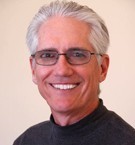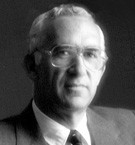Jonathan Edwards: An Introduction to His Thought
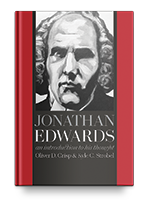
Oliver D. Crisp &
Kyle C. Strobel
M.A. ’02, M.A. ’05, Professor of Spiritual Theology
Eerdmans, February 2018
Jonathan Edwards (1703–58) has long been recognized as one of the preeminent thinkers in the early Enlightenment and a major figure in the history of American Christianity. In this accessible one-volume text, leading Edwards experts Oliver Crisp and Kyle Strobel introduce readers to the fascinating and formidable mind of Jonathan Edwards as they survey key theological and philosophical themes in his thought, including his doctrine of the Trinity, his philosophical theology of God and creation, and his understanding of the atonement and salvation.
Why We Need the Church to Become More Like Jesus: Reflections about Community, Spiritual Formation, and the Story of Scripture
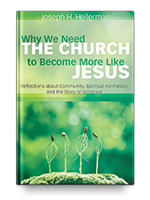
Joseph H. Hellerman
M.Div. ’84, Th.M. ’87, Professor of New Testament Language and Literature
Cascade Books, November 2017
Many of us long to experience the fullness of God and his purpose for our lives. Not a whole lot of us ever do. The reason is that we have departed in some significant ways from the biblical view of Christian life and growth. The New Testament highlights the communal, missional and eschatological aspects of our walk with God. In recent decades, American evangelicals have traded away community, outreach and the Bible's teaching about eternity future for the pursuit of individual religious experience in the here-and-now. Why We Need the Church to Become More Like Jesus traces this departure from biblical Christianity through recent decades of popular evangelical trends and reminds us that faith centered on community, mission and the storyline of Scripture remains the key to the spiritual formation of the individual Christian.
Interpreting the Wisdom Books: An Exegetical Handbook
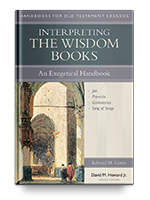
Edward M. Curtis
Professor Emeritus of Biblical and Theological Studies
Kregel Academic, September 2017
The wisdom literature of the Bible (Job, Proverbs, Ecclesiastes and Song of Songs) is filled with practical principles for everyday life. While some Christians are deterred by the pragmatic character of these matter-of- fact guidelines, they are as integral to God's purposes for His people as the explicitly theological material that dominates other parts of Scripture. The wisdom books tie these two streams of God’s revelation together in a way that enriches and strengthens the church.
The Holy Spirit as Communion: Colin Gunton’s Pneumatology of Communion and Frank Macchia’s Pneumatology of Koinonia
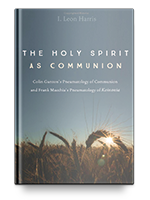
I. Leon Harris
’00, M.Div. ’06, Th.M. ’08, Assistant Professor of Theology
Pickwick Publications, September 2017
In The Holy Spirit as Communion, Leon Harris examines the pneumatologies of Colin Gunton and Frank Macchia. For both theologians, the doctrine of the Holy Spirit is foundational to understanding their doctrine of God, Christology and ecclesiology. Drawing on the theme of communion, The Holy Spirit as Communion expresses the concept that the Holy Spirit is the person who perfects the divine nature and personhood of the Father and Son. It is the Holy Spirit who perfects the eternal communion within the divine Trinity, which is the source of the divine action that also perfects the communion in creation as an expression of the Father’s will through Jesus Christ.
 Biola University
Biola University